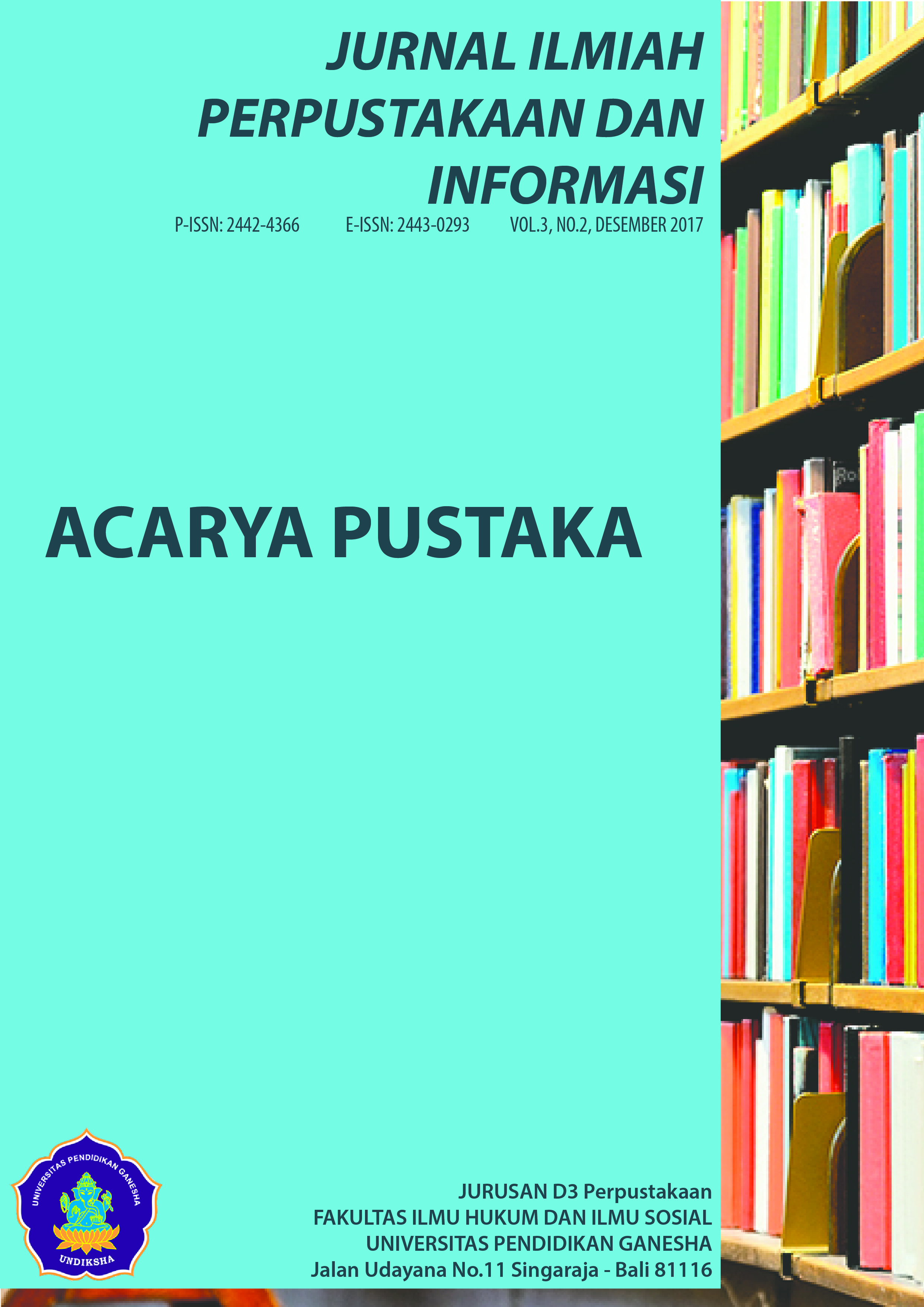Menjadi Perpustakaan Andragogi: Kajian Perpustakaan Universitas Indonesia sebagai Ruang Belajar Pengguna Dewasa
DOI:
https://doi.org/10.23887/ap.v3i2.13055Abstract
Abstract
Andragogy is an education philosophy that refers to the method or the art of teaching and guiding adults. Popularized by Malcolm Knowles, the point of andragogical learning process relies on the view that adults are individuals who (1) are independent, (2) have life experiences that can be the foundation of learning, (3) have a desire to learn, (4) have a learning orientation appropriate to their life, and (5) have the motivation to learn. The academic library users are the academic student are an adults who has their preference on style of study, their specific needs and their own anxiety and. It is important for academic library to know preference on study style of their users, so that they can build academic to become an ideal learning spaces the adult. Becoming the center of Universitas Indonesia student Activities (especially on the learning activity) it is important for the Universitas Indonesia Library to understand the needs, characteristics and anxieties felt by the University of Indonesia students. Through this article, the authors will examine the model of adult learning of University of Indonesia students and also explained the development of Library University of Indonesia in supporting the process of adult learning in the university environment of Indonesia. This paper is based on qualitative research methods with data collection techniques such as interview, observation and literature study. Taking advantage of the phenomenological description analysis approach, the study findings show that the University of Indonesia's library is no longer merely an institution to obtain information, but also as a space for students to process the information to be learned for themselves.
Keyword: academic library, adult learning, andragogy

